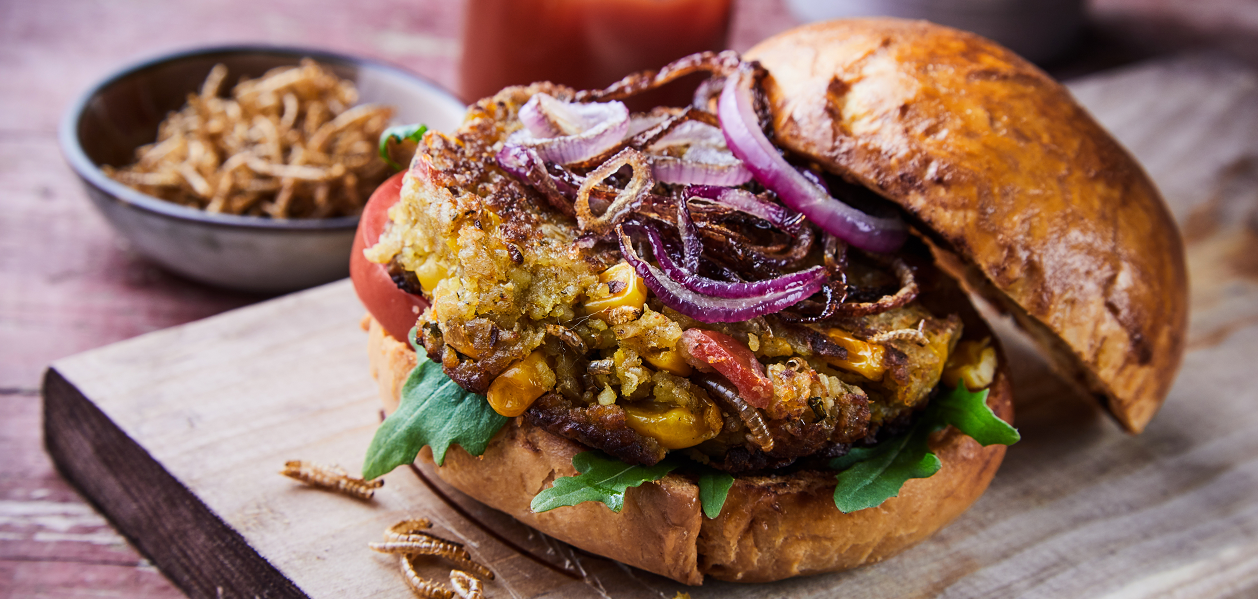An appetite for change
Technological advances and design thinking approaches offered food for thought at TechInnovation 2021 as experts discussed the future of Asia’s agricultural sector.
Humans have an inseparable relationship with food that is deeply embedded in our culture, health and environmental footprint. However, mass producing an extensive array of fresh produce or processed food for billions of people worldwide comes with a steep resource cost.
The agricultural sector, for example, consumes 70 percent of the world’s freshwater supply. Even with efficient modern production systems, 1.3 billion tonnes of food—equivalent to a third of all food produced for human consumption—goes to waste each year. Ultimately, the food sector that we know today faces an unsustainable present and future, threatening both people and the planet.
To ensure food security, researchers, industry players and governments are harnessing technology and human-centred design thinking to develop and test unique solutions. As part of IPI’s TechInnovation 2021 conference, a keynote session on “Digging Deep to Meet our Future Food Needs” showcased several exciting approaches to foster sustainable food production.
Here are some of the most noteworthy takeaways from the session on 29 October.
Tomorrow’s menu
With a single burger requiring over 3,000 litres of water to produce, the fast food industry takes a particularly heavy toll on the environment. Combined with the resource requirements for raising cattle, it’s clear that a fundamental rethink of food protein production is needed.
On the hunt for more environmentally friendly ingredients, SPACE10, a research and design laboratory in Denmark, developed innovative food products by using alternative protein such as insects and microalgae.
“We are facing a huge systemic problem, and the solution to this will be a combination of a lot of different initiatives—from new ways of producing and distributing food, transitioning to a clean energy system, new technologies and new ingredients,” said SPACE10’s Co-founder and Communications Director Simon Caspersen. “We simply need to be a lot smarter and more efficient about the way we produce our food going forward.”
While insects may seem unappetising, Caspersen explained that these bugs have great taste, high nutritional content and a low environmental footprint. Compared to a traditional beef patty, SPACE10’s mealworm-based patty requires 80 percent less water and produces 90 percent less greenhouse gas emissions which damage the atmosphere and intensify global warming.
In addition to insect-based alternatives, SPACE10 also works with microalgae. Packed with vitamins and minerals, microalgae grow extremely fast and carry more protein than any other food sources, Caspersen shared. Besides creating a palatable microalgae-based sausage, SPACE10 built a four-metre high bioreactor—a biologically active manufacturing environment—to grow 100 kilograms of microalgae per day.
For Caspersen and SPACE10, changing production and consumption habits will rely on helping consumers become familiar with the unfamiliar by creating enticing alternatives that taste and look good—offering the flavour of tomorrow’s menu as early as today.
A fresh perspective on damages
Production aside, existing food distribution methods are also marred by unsustainable practices. Despite being perfectly good to eat, many fruit and vegetables with small blemishes are disposed by retailers and consumers as the unattractive produce is perceived as low quality.
Combatting such food wastage is the mission of Yeo Pei Shan, founder of educational advocacy Food Warrior and previously the co-founder of Singapore-based social enterprise UglyFood. Through design thinking approaches, Yeo and her collaborators delved into user needs, explored prototype solutions, and implemented their vision to create appealing products from damaged produce.
According to Yeo, the larger mission was changing mindsets and helping people to recognise flawed produce as perfectly edible items. To do so, they encouraged consumers to try their products, such as juices and dairy-free popsicles, before they revealed the ‘ugly’ ingredients afterwards.
Next, the team moved higher up the supply chain to tackle wastage from over-importation. Instead of processing the tarnished ingredients into other end-products, Yeo shared that they directly sold the importers’ supplies as fresh produce. “We passed on the savings to our consumers so they don’t need to spend as much on groceries,” she revealed.
In the spirit of waste reduction, UglyFood also encourages customers to donate packaging such as takeaway containers and reusable plastic bags. “There is no power for change greater than a community discovering what it cares about,” Yeo said.
Reimagining farmlands
Effectively combining farms, factories and fun, Singapore-headquartered hospitality brand R+ uses design thinking to work with underserved farming communities across Asia. As R+ Founder and CEO Andy Goh explained, to further develop Asia’s farming sector, the team builds hotels and resorts on farmlands and processes harvested crops through factories in a closed-loop model.
“Instead of bringing the food to the factory, we bring the processing parts of the factory to the farm,” he said, adding that end-products are distributed through retailers or offered via R+ hotels’ dining menus.
Besides hospitality operations, the team also develops the community of surrounding farms through sister subsidiary Farmcube. “We engage the local farmers to supply fresh produce for the hotel’s food and beverage services. Eventually, the hotel’s waste goes back to the farm, forming a resource loop,” Goh shared.
Already driving impact in Cambodia and Taiwan, R+ enhances sustainability along the supply chain while elevating the livelihoods of local farmers through this integrated ecosystem.
Whether revamping food options or transforming landscapes, many innovative approaches are empowering community members to take an active part in food sustainability in Singapore and worldwide.
We’ll leave it to you to prepare your palate for a mealworm-based patty or microalgae sausage.

